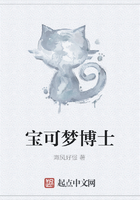For all that, the judgement of taste contains beyond doubt an enlarged reference on the part of the representation of the object (and at the same time on the part of the subject also), which lays the foundation of an extension of judgements of this kind to necessity for every one.This must of necessity be founded upon some concept or other, but such a concept as does not admit of being determined by intuition, and affords no knowledge of anything.Hence, too, it is a concept which does not afford proof of the judgement of taste.But the mere pure rational concept of the supersensible lying at the basis of the object (and of the judging subject for that matter) as object of sense, and thus as phenomenon, is just such a concept.For unless such a point of view were adopted there would be no means of saving the claim of the judgement of taste to universal validity.And if the concept forming the required basis were a concept of understanding, though a mere confused one, as, let us say, of perfection, answering to which the sensible intuition of the beautiful might be adduced, then it would be at least intrinsically possible to found the judgement of taste upon proofs, which contradicts the thesis.
All contradiction disappears, however, if I say: The judgement of taste does depend upon a concept (of a general ground of the subjective finality of nature for the power of judgement), but one from which nothing can be cognized in respect of the object, and nothing proved, because it is in itself indeterminable and useless for knowledge.Yet, by means of this very concept, it acquires at the same time validity for every one (but with each individual, no doubt, as a singular judgement immediately accompanying his intuition):
because its determining ground lies, perhaps, in the concept of what may be regarded as the supersensible substrate of humanity.
The solution of an antinomy turns solely on the possibility of two apparently conflicting propositions not being in fact contradictory, but rather being capable of consisting together, although the explanation of the possibility of their concept transcends our faculties of cognition.That this illusion is also natural and for human reason unavoidable, as well as why it is so, and remains so, although upon the solution of the apparent contradiction it no longer misleads us, may be made intelligible from the above considerations.
For the concept, which the universal validity of a judgement must have for its basis, is taken in the same sense in both the conflicting judgements, yet two opposite predicates are asserted of it.The thesis should therefore read: The judgement of taste is not based on determinate concepts; but the antithesis: The judgement of taste does rest upon a concept, although an indeterminate one (that, namely, of the supersensible substrate of phenomena); and then there would be no conflict between them.
Beyond removing this conflict between the claims and counter-claims of taste we can do nothing.To supply a determinate objective principle of taste in accordance with which its judgements might be derived, tested, and proved, is an absolute impossibility, for then it would not be a judgement of taste.The subjective principle-that is to say, the indeterminate idea of the supersensible within us -can only be indicated as the unique key to the riddle of this faculty, itself concealed from us in its sources;and there is no means of ****** it any more intelligible.
The antinomy here exhibited and resolved rests upon the proper concept of taste as a merely reflective aesthetic judgement, and the two seemingly conflicting principles are reconciled on the ground that they may both be true, and this is sufficient.If, on the other hand, owing to the fact that the representation lying at the basis of the judgement of taste is singular, the determining ground of taste is taken, as by some it is, to be agreeableness, or, as others, looking to its universal validity, would have it, the principle of perfection, and if the definition of taste is framed accordingly, the result is an antinomy which is absolutely irresolvable unless we show the falsity of both propositions as contraries (not as ****** contradictories).This would force the conclusion that the concept upon which each is founded is self-contradictory.Thus it is evident that the removal of the antinomy of the aesthetic judgement pursues a course similar to that followed by the Critique in the solution of the antinomies of pure theoretical reason; and that the antinomies, both here and in the Critique of Practical Reason, compel us, whether we like it or not, to look beyond the horizon of the sensible, and to seek in the supersensible the point of union of all our faculties a priori: for we are left with no other expedient to bring reason into harmony with itself.
REMARK 1.
We find such frequent occasion in transcendental philosophy for distinguishing ideas from concepts of the understanding that it may be of use to introduce technical terms answering to the distinction between them.I think that no objection will be raised to my proposing some.Ideas, in the most comprehensive sense of the word, are representations referred to an object according to a certain principle (subjective or objective), in so far as they can still never become a cognition of it.They are either referred to an intuition, in accordance with a merely subjective principle of the harmony of the cognitive faculties (imagination and understanding), and are then called aesthetic; or else they are referred to a concept according to an objective principle and yet are incapable of ever furnishing a cognition of the object, and are called rational ideas.In the latter case, the concept is a transcendent concept, and, as such, differs from a concept of understanding, for which an adequately answering experience may always be supplied, and which, on that account, is called immanent.















